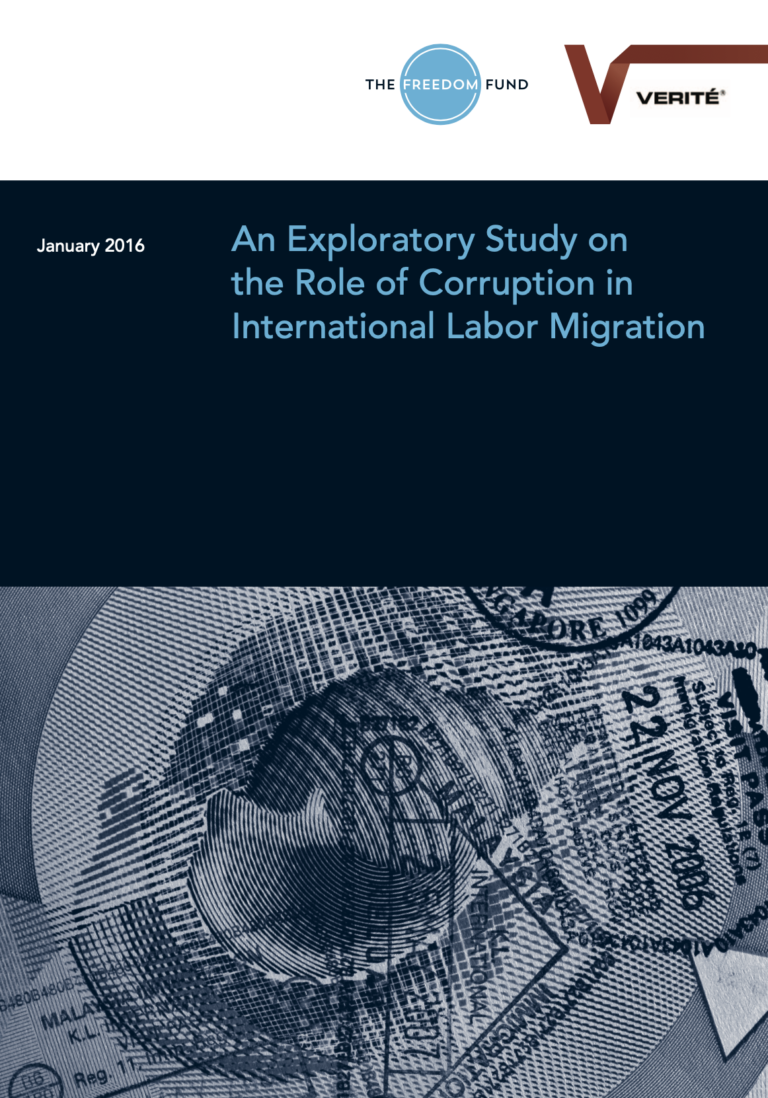In this targeted, exploratory research project, Verité examined three illustrative transnational migrant worker recruitment corridors – Nepal to Qatar, Myanmar to Malaysia, and Myanmar to Thailand – to identify the points in the recruitment process where bribes or illicit payments are solicited and paid; the entities implicated; the range and nature of such payments; and the corresponding benefit that accrues to the employers of migrant workers. Verité combined a literature review, qualitative field work, and, where relevant, institutional knowledge based on years of audit, research and consulting experience in the corridors examined. The nature of this research was exploratory, meaning we aimed to get input from a range of perspectives that can help us better understand the nature and extent of corruption in all its complexity, without attempting to reach firm or sweeping conclusions about the exact levels of corruption in particular countries. Moreover, another important additional goal of the study was to better understand the methodological challenges and opportunities connected to researching corruption in migration corridors so that we can better design future research that will be able to reach more definite conclusions.

